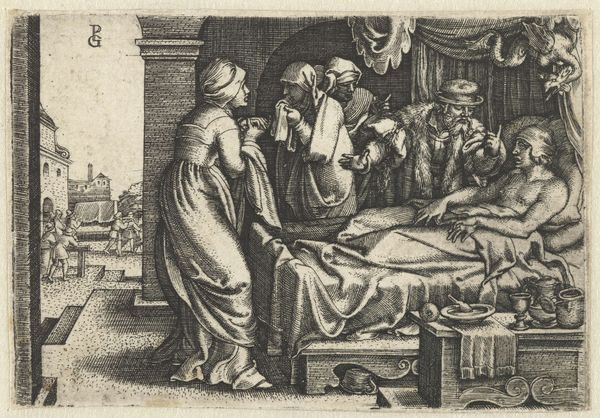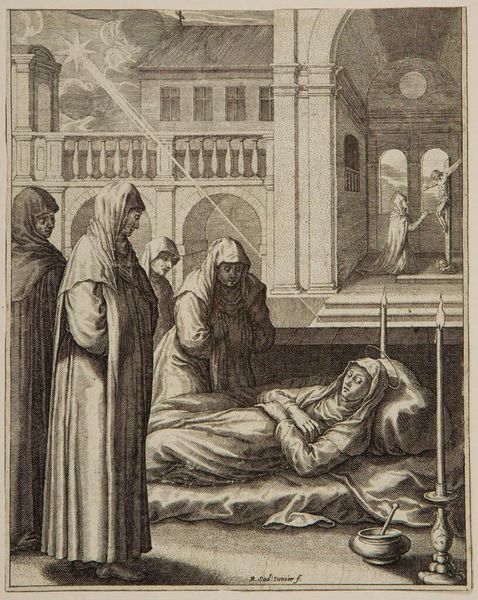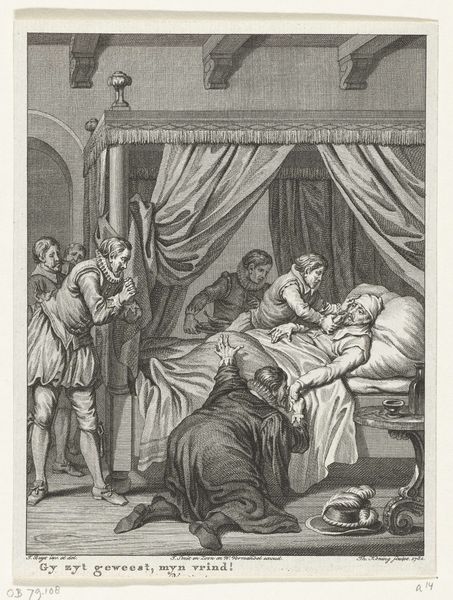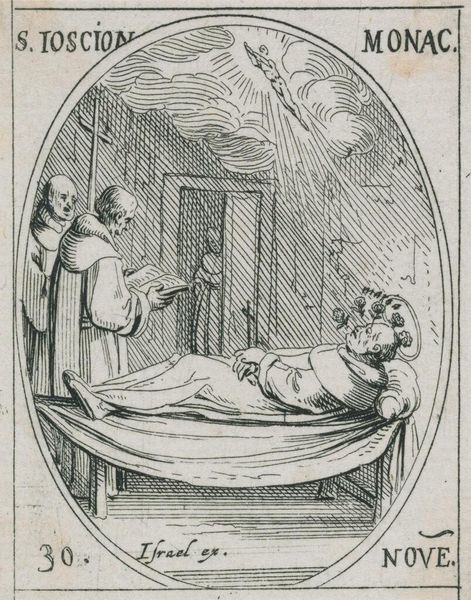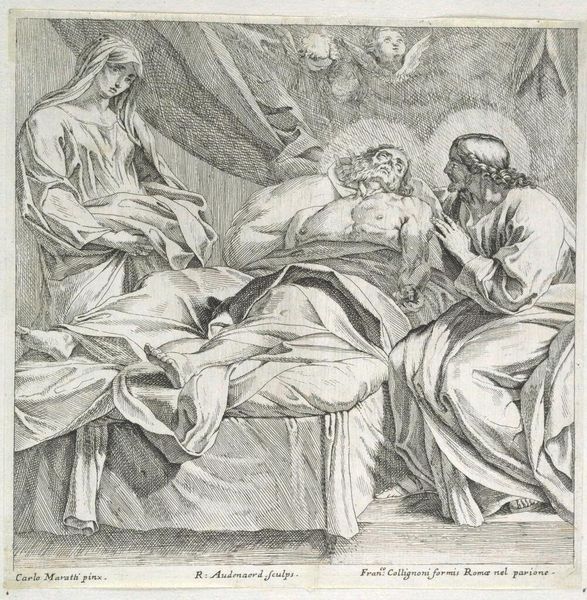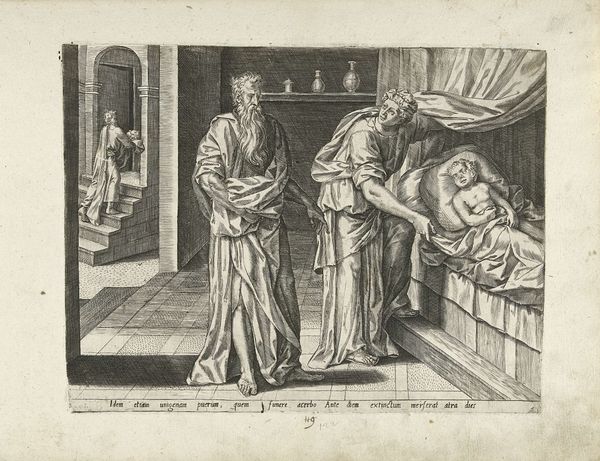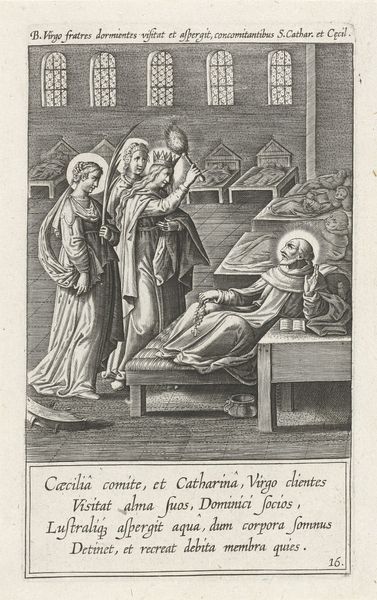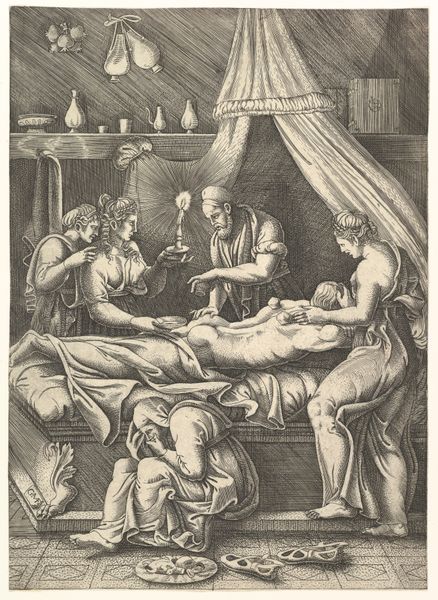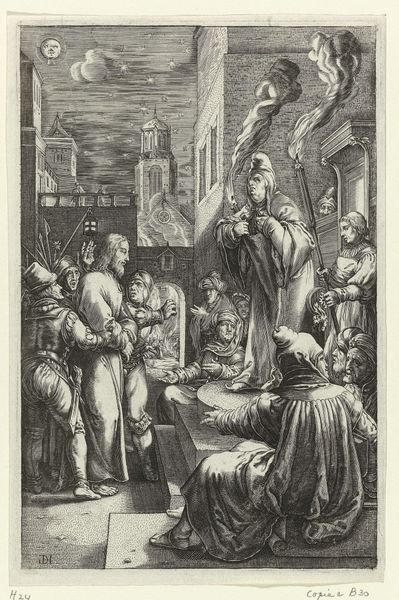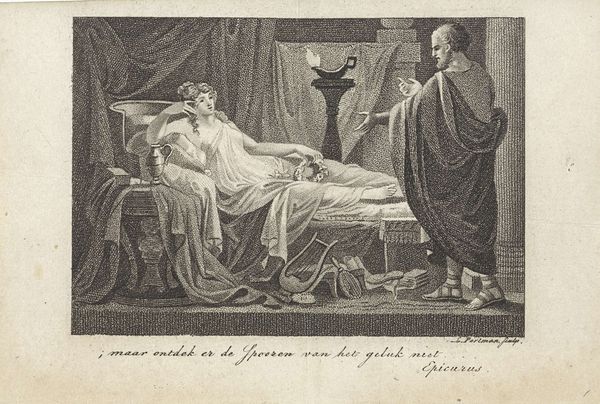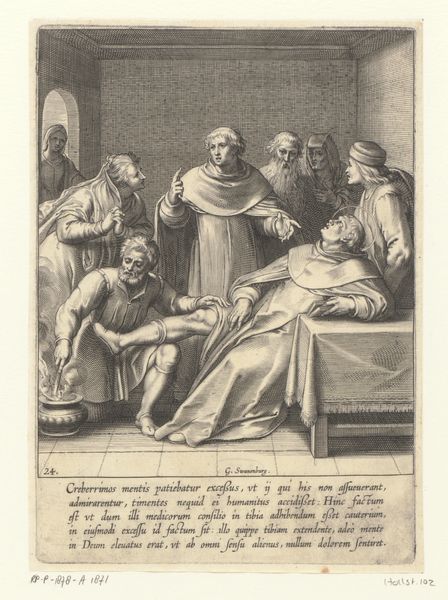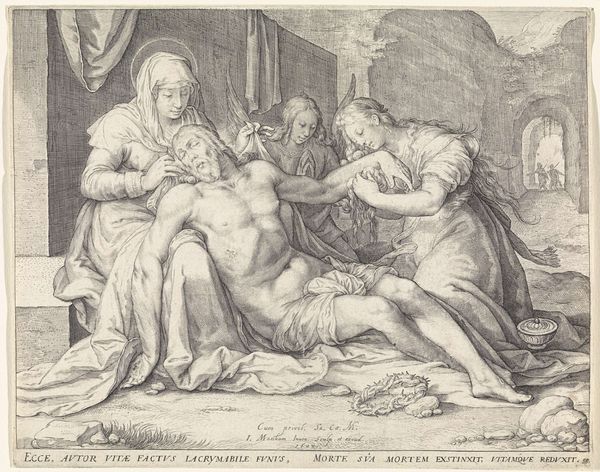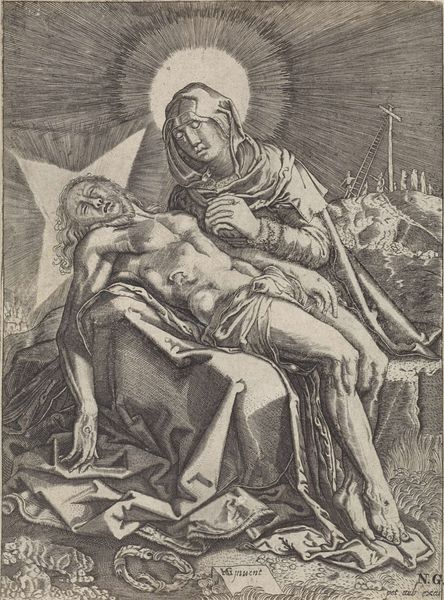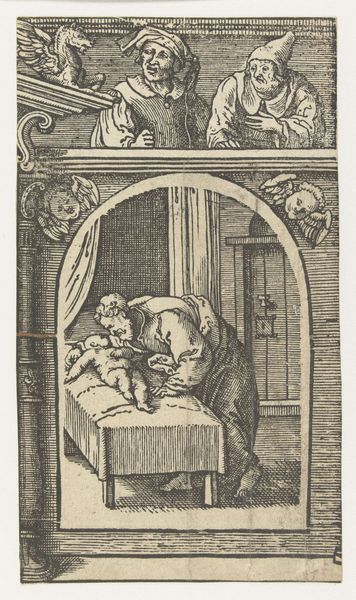
print, engraving
#
narrative-art
#
baroque
# print
#
history-painting
#
engraving
Dimensions: width 54 mm, height 90 mm
Copyright: Rijks Museum: Open Domain
Theodoor Galle created this small print, *The Deathbed of Joseph*, sometime between 1571 and 1633, using engraving. Engraving involves cutting lines into a metal plate, which are then filled with ink and printed. The character of the lines, and the distribution of light and shadow, depend entirely on the engraver’s hand and eye. This was a highly skilled profession. Galle was part of a dynasty of engravers based in Antwerp, a center of this reproductive art form, which helped spread imagery across Europe. Engravings like this were luxury items, but they also had a practical, devotional purpose. They offered accessible versions of religious narratives to a wide audience. The labor involved in the production process is subtly present in the fine lines and the composition of the image. Considering the materials, processes, and social context helps us appreciate the artistry and cultural significance of this small but powerful work. It also invites us to rethink the hierarchies between fine art and craft.
Comments
No comments
Be the first to comment and join the conversation on the ultimate creative platform.
